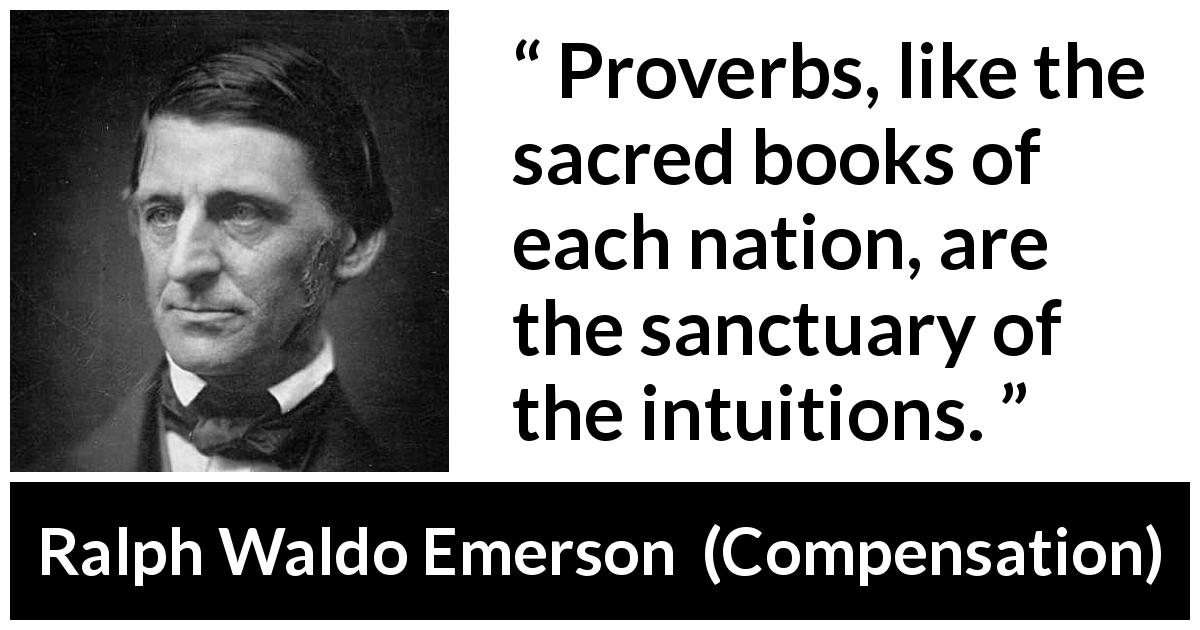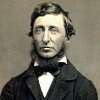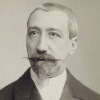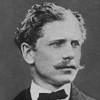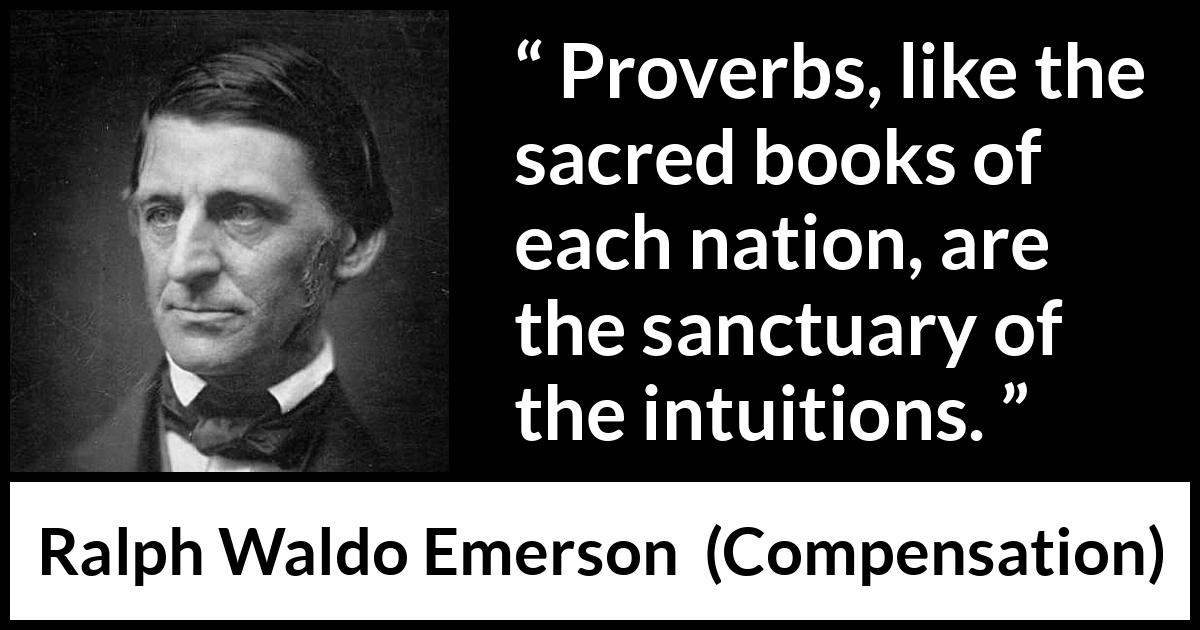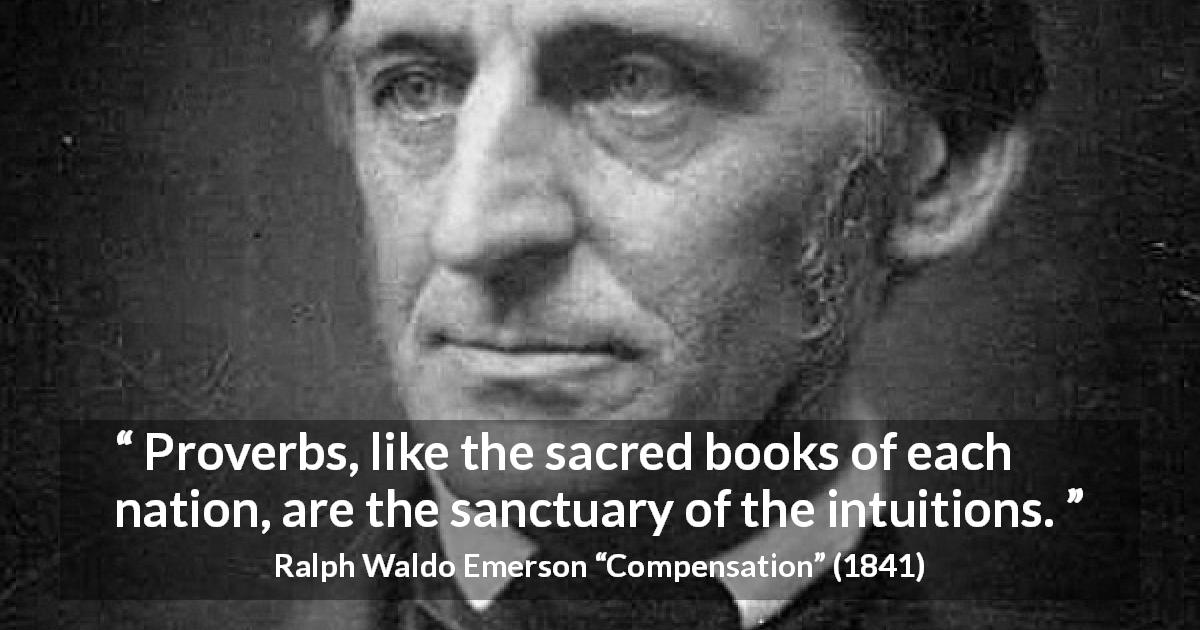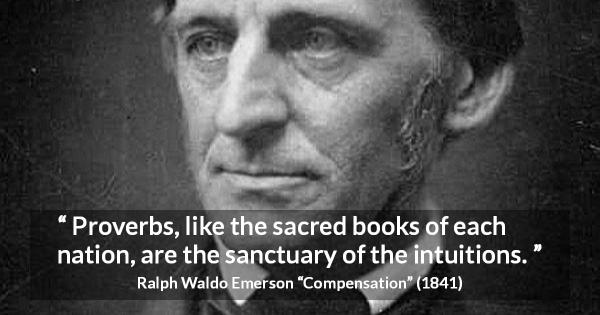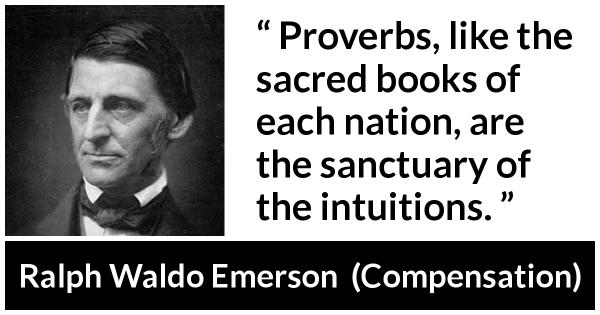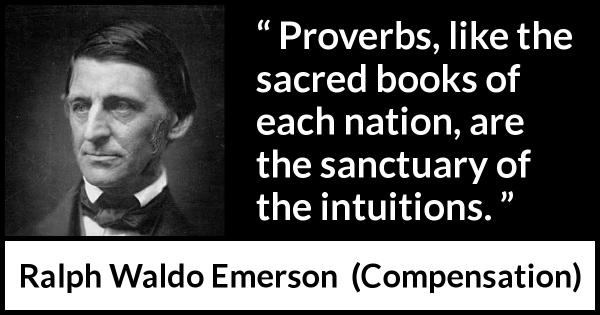“ Proverbs, like the sacred books of each nation, are the sanctuary of the intuitions. ”
Ralph Waldo Emerson, Compensation (1841). copy citation
| Author | Ralph Waldo Emerson |
|---|---|
| Source | Compensation |
| Topic | intuition proverbs |
| Date | 1841 |
| Language | English |
| Reference | in "Essays: First Series" |
| Note | |
| Weblink | https://en.wikisource.org/wiki/Essays:_First_Series/Compensation |
Context
“We are to see that which man was tending to do in a given period, and was hindered, or, if you will, modified in doing, by the interfering volitions of Phidias, of Dante, of Shakspeare, the organ whereby man at the moment wrought.
Still more striking is the expression of this fact in the proverbs of all nations, which are always the literature of reason, or the statements of an absolute truth, without qualification. Proverbs, like the sacred books of each nation, are the sanctuary of the intuitions. That which the droning world, chained to appearances, will not allow the realist to say in his own words, it will suffer him to say in proverbs without contradiction. And this law of laws which the pulpit, the senate, and the college deny, is hourly preached in all markets and workshops by flights of proverbs, whose teaching is as true and as omnipresent as that of birds and flies.” source
Still more striking is the expression of this fact in the proverbs of all nations, which are always the literature of reason, or the statements of an absolute truth, without qualification. Proverbs, like the sacred books of each nation, are the sanctuary of the intuitions. That which the droning world, chained to appearances, will not allow the realist to say in his own words, it will suffer him to say in proverbs without contradiction. And this law of laws which the pulpit, the senate, and the college deny, is hourly preached in all markets and workshops by flights of proverbs, whose teaching is as true and as omnipresent as that of birds and flies.” source
